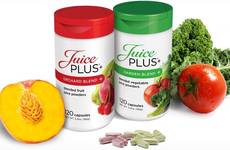 By Kimberly Hartke
By Kimberly Hartke
Simple Organic
My husband and I have gone beyond organic in our quest for good health. We now buy 95% of our food from local farmers.
The Virginia Tech Extension Service did an analysis that showed if each household in the state spent just $10.00 a week on local foods, it would bring 1.65 billion dollars annually to the state economy. Just imagine, those of us who care about our health and the environment can make a big difference!
We can each help our nation move away from petroleum based fertilizers, curb pesticide use, improve our soils, and reduce our carbon footprint. All by going out of our way to support a local farmer. And, we will eat better, regain self sufficiency, and improve our health.
Some will argue, “We can’t feed the world with local food.”
Frankly, I have concluded that these are excuses made by apologists for our current unsustainable industrial food system. For example, a Virginia Magazine reported that from 1965 to 1997 the number of dairy farms in Virginia declined by 97% from over 37,000 to only 1200; by 1999, there were a mere 996 – which means most of our milk is “imported” from elsewhere.
Of course we can’t feed ourselves if our number of farms are dramatically dropping, which is precisely why we need to change the food system and consciously support local agriculture.
Read full post at Simple Organic!






Thanks for your article. I am still sticking with organic foods and not local – if the local is not organic. Surely, I am not going to eat cheese, e.g. from a local cow fed bovine growth hormone, instead of from a farther away organic cow. Or local vegetables and fruits that are not organic, but filled with pesticides, or perhaps “low spraying” as some of the products at local farmers markets say. I have not listened to what the government has said about food or many other things for decades. For me, local is good only if it is better than farther away, not necessarily better only because it is local. Rather, we need to be telling our locals that we want organic food from them.
yeah, she wasn’t clear about this point -I noticed that. But, the article was posted at Simple Organic, so I’m thinking that’s what she meant.
I also read that it’s better to eat chemically farmed vegetables than none…
we take our druthers
I fully support buying local and organic, and also good farming practices. However I am going to challenge you to prove the following assertions:
“The skyrocketing autism in our toddlers, depression and violence among young people, infertility among married couples and the obesity epidemic amongst young and old are alarming trends as a result of misguided dietary advice”
I am a psychology honours student with an especial interest in abnormal behaviour, and I am not aware of any research tying autism and depression to lack of animal fats in the diet. I would also be willing to argue that the rise in obesity has more to do with the rise in meat consumption than a move to lower fat and vegetable fats.
“It is a highly politicized process, and we saw obesity skyrocket after 1992, when the pyramid advised six to eleven daily servings of bread, cereal, rice and pasta. It also tipped our scales toward diabetes, degenerative diseases, and despair.”
I agree that food is highly politicised, but I think you’ll find the meat and dairy lobby (ironically via people like the Weston A Price foundation) have a much more powerful voice than people producing crops, or advocating eating a plant-based diet. Also, a diet laden with animal fats and too much protein are far more likely to help you on the way to obesity, heart disease and the like – I can provide links if you’re interested.
As for sponsoring a cow to “a good life”, this is highly debatable. Is she impregnated after every delivery to ensure a steady supply of milk? Does she get to keep her calves with her or are they taken away shortly after birth as on most farms? And what happens to her once her milk production drops? Just wondering.
Anyway, doing your own research is commendable, just keep a close eye on your sources.